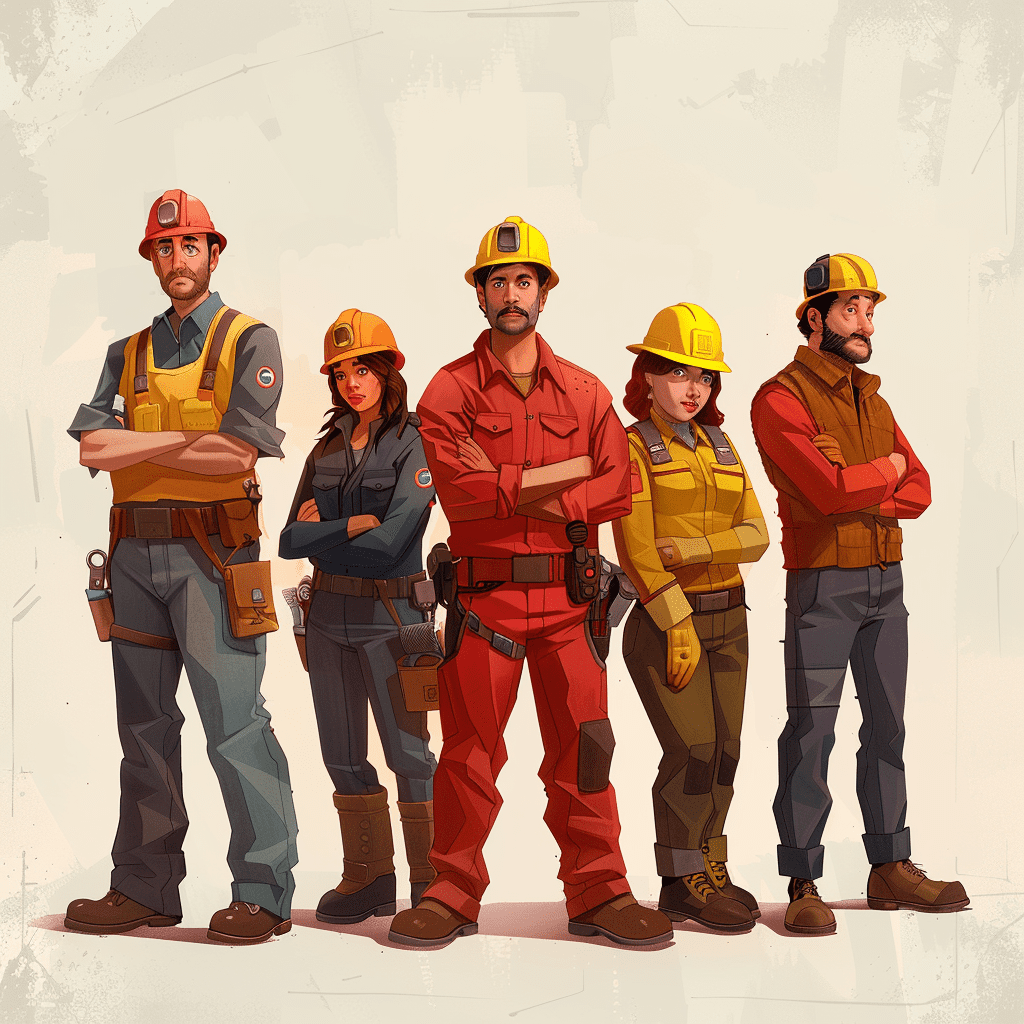
What Does It Take To Be An Engineer?
Engineers are creative and analytical team players who dream up practical solutions to everyday problems. They use science to create the physical world that surrounds us – everything from recycling systems, earthquake-resistant buildings, to new Internet technology and streaming media.
Engineers are the ones that make life better, whether it’s through safer cars or more accurate tests in medicine. What are the qualifications to become an Engineer?
Problem-Solving Skills
Problem-solving skills are necessary for engineers to be able to work on a variety of projects. They may have to solve mechanical, electrical, software, structural or other engineering problems. These solutions may require creativity and critical thinking. A good engineer must also be able to adapt in different situations.

Trial and error is one of the most common methods to solve a particular problem. You might try different methods to open a box if you are having difficulty. This method can be very time-consuming and frustrating, but it is also effective. Another way to solve a problem is to break it down into smaller, manageable parts; keeping good engineering document management strategy. This method is called divide and conquer or reduction, and it can help you to be more efficient and effective at solving problems.
Another way to improve your problem-solving skills is by trying out different tools and platforms. This will allow you to be more flexible when working on projects and can help you think creatively. This will also help you if you are working on a complicated project, because it will allow you to find more efficient and effective solutions.
To begin, you can identify the type of problem that needs solving. Then, you can gather all the necessary information and decide on what steps to take to solve it. You can then use the problem solving techniques that are most appropriate for the task.
The empirical analysis supports the need for policy support to nurture both engineers’ basic skills and their capabilities for finding and solving problems within their firms and with suppliers and customers. The findings also highlight how important it is to develop an engineering education program that includes quality control as a prerequisite for innovative thinking.
Communication Skills
Communication skills are essential for engineers because they work with various types of people and cultures. They must be able communicate effectively both verbally and in written form. They also need to be able to collaborate with team members and other professionals. In addition, they must be able to present their work in front of others. These skills will help them get the best projects, and progress in their career.
Effective verbal communication involves being able to listen and speak clearly. This skill helps engineers to understand what people are saying and their concerns. It involves a good understanding of body language and nonverbal cues. This is important as it can help to avoid miscommunications.
Writing clearly and concisely is essential to effectively convey technical information. This is crucial because it prevents misunderstandings in complex engineering project. It is also important for engineers to be able to write professionally, which requires attention to grammar, spelling, and punctuation rules.
Visual communication includes the use of pictures, drawings, illustrations and photographs to share thoughts, ideas and insights with other engineers. This is important because it can reduce time and effort spent on meetings and help promote collaboration. It is important that engineers are proficient in web conferencing and other virtual meeting technology.
It is more common than ever for teams to work from a distance. Effective communication is therefore more important than ever. It is also important for engineers to be comfortable working with different cultures and backgrounds.
Engineers in communications often face challenges when designing and troubleshooting systems. Therefore, they must be able maintain a calm demeanor while focusing on the problem. They must be able think critically, and be detail-oriented. They must also be able to identify inefficient process and develop cost-effective solutions. They must also have the ability to work with diverse teams of engineers and techs.
Creativity
Engineers are often able to see solutions other people may miss. An engineer might imagine a gel-like sleeve to wrap around a muscle that is causing a damaged heart to stretch and put pressure on other organs. This will prevent the muscle from expanding and damaging other organs. The engineer may also be able to find a less invasive solution than surgery by cutting off a blood vessel or inserting a tube into the body.
Creativity is a difficult concept to define. In general, creativity is the ability to create something original and useful. It does not mean copying or replicating a process. It must be spontaneous and not produced by a routine or mechanical process. It must also be transformative. This means that the new product will change an existing situation or domain. Some psychologists believe that creativity cannot be studied scientifically.
Many researchers are still working on this topic and many books have been written, both scholarly and for the general public. To understand creativity, one approach is to look at patterns of behavior. For example, what types of activities may cause people to come up with creative ideas. Researchers are trying to discover the factors that might influence these behaviors.
There is also a whole industry dedicated to unlocking the secrets of creativity. Universities offer courses on “creativity thinking” and consultants hire doctors and engineers to teach them how to be more creative. The study of creativity has also been studied by cognitive and behavioral scientists using a wide variety of empirical techniques.
Aside from the intellectual challenges of solving problems, a career in engineering requires a strong sense of ethics and responsibility. A mistake by an engineer can have a more serious and lasting effect than a mistake in another profession. Engineers must therefore have a solid foundation in STEM skills, as well as a moral compass that guides their decisions.
Responsibility
Engineers must be committed to the public good just as other professionals, such as doctors and attorneys. Engineers may join professional societies which have codes of ethics that outline specific, action-oriented duties and reasoning requirements. These codes of ethical conduct are written documents that outline engineers’ responsibilities and how these responsibilities relate with the central reasoning requirement for engineering.
The ability to understand the workings of nature is essential for engineers. This includes a thorough understanding of the physical characteristics of materials, and an understanding of energy sources. These are important for the engineering profession as most projects involve the creation or use of resources. It is the responsibility of engineering professionals to understand the legal language used in contracts and ensure that both they and their clients adhere strictly to the contract’s terms. They must also educate the public about engineering’s contributions.
Engineers who are committed to the common good must be involved in civic affairs and career guidance for young people, as well as promoting engineering and its contribution to society. They should always strive to be honest, ethical and fair with others even when they disagree. They should be willing to share their professional expertise with those less skilled than themselves, and should make a concerted effort to promote the advancement of the engineering profession.












